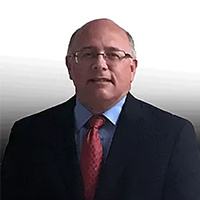Somerville Criminal Lawyer, Virginia
Sponsored Law Firm
-
 x
x

Click For More Info:
-
Price Benowitz LLP
409 7Th St Nw Suite 200 Washington, DC 20004» view mapCriminal Law Working Relentlessly For You
Our firm was built on the understanding that comprehensive representation does not begin and end in the courtroom.
202-600-9400
Nicole Holls Naum
✓ VERIFIEDNicole H. Naum is a Partner and founding member of Battlefield Law Group PLLC. Ms. Naum is a trial attorney who has dedicated her career to protecting... (more)
Guy F. White
✓ VERIFIEDWith over 25 years of experience in law, Attorney White has a broad range of expertise. Handling of criminal, DUI and traffic offenses with extens... (more)
Steve Duckett
Steve Duckett is a lawyer in the state of Virginia who handles criminal cases. He has tried cases involving assault, drug crimes, DUI, gun charges,... (more)
Andrew William Lindsey
Andrew Lindsey is a valued member of the firm’s Northern Virginia legal team, but has litigated criminal cases from border to border of the Commonwe... (more)
William Torrico
✓ VERIFIEDI've been practicing law since 1995. I'm licensed to practice law in the Commonwealth of Virginia, the District of Columbia, the State of Georgia, th... (more)
FREE CONSULTATION
CONTACT Seth Price Washington, DC
Seth Price Washington, DC AboutPrice Benowitz LLP
AboutPrice Benowitz LLP Practice AreasExpertise
Practice AreasExpertise





